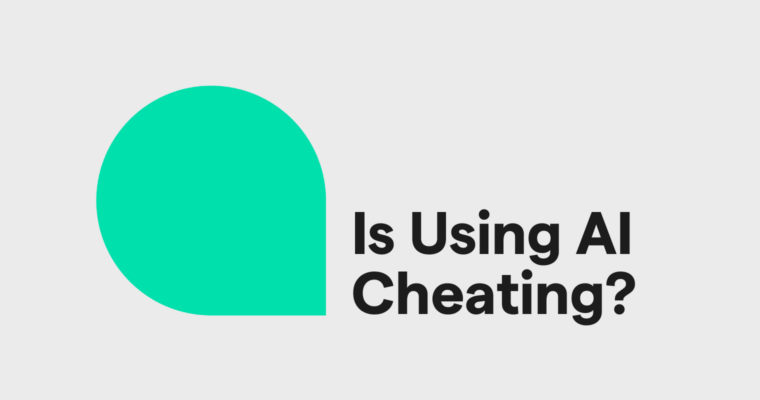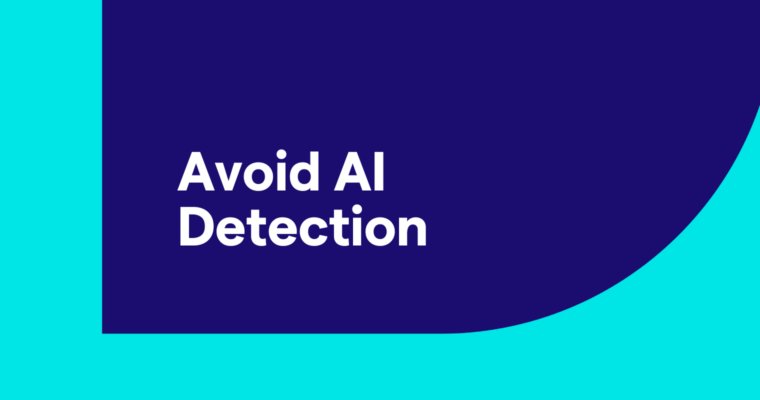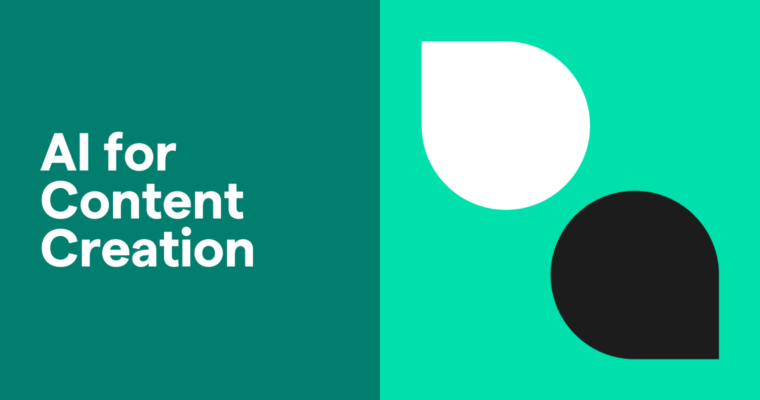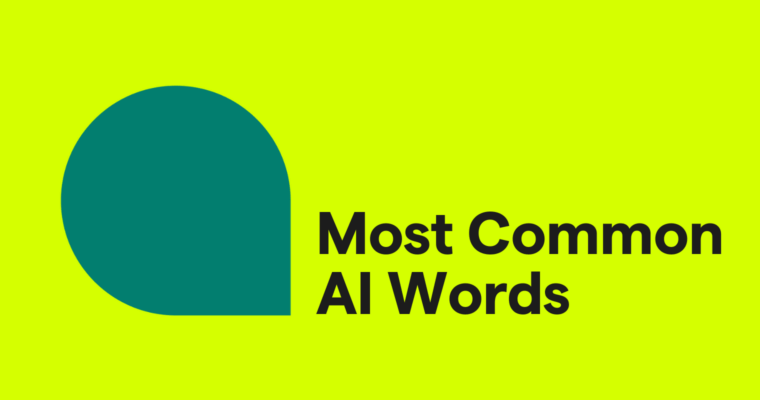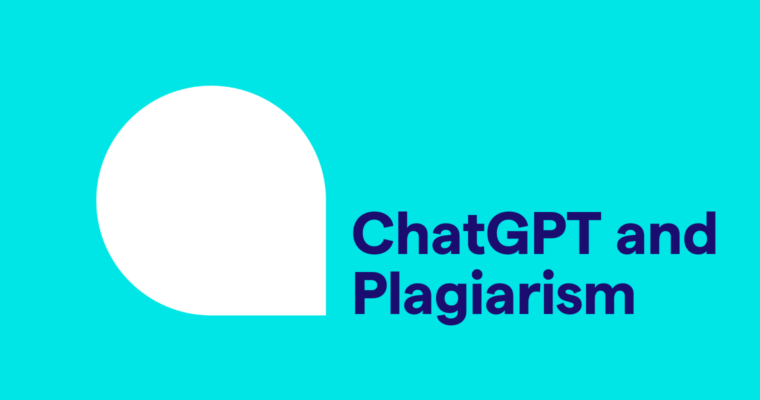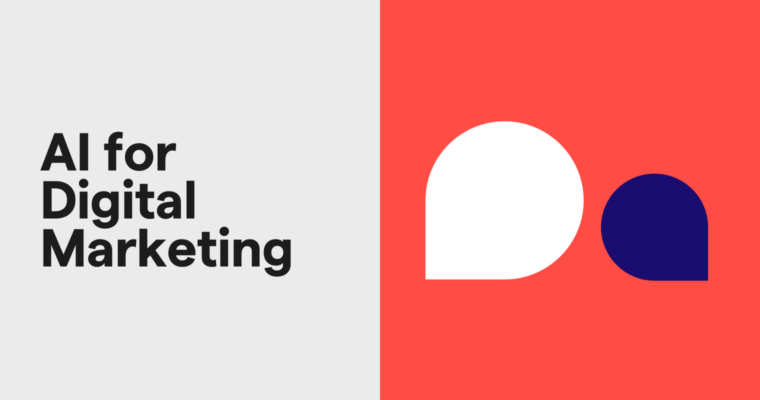
Artificial intelligence (AI) is becoming an increasingly common part of modern marketing. From tools that generate content to those that analyze performance data, AI is already built into many of the platforms marketers use today. But making the most of it still requires a thoughtful, strategic approach.
In this guide, we’ll break down exactly how AI fits into the digital marketing workflow. From content creation and SEO to campaign optimization, we’ll cover practical ways to use AI—plus some helpful tools to get started. But first, let’s begin with the basics: What exactly is AI for digital marketing, and how does it work?
Table of Contents
What is AI for digital marketing?
How to use AI for digital marketing
AI for advertising and campaign optimization
AI for personalization and customer experience
Pros and cons of AI for digital marketing
Best AI tools for digital marketing
AI for digital marketing: closing thoughts
What is AI for digital marketing?
AI for digital marketing refers to the use of AI technologies to enhance, automate, and optimize marketing efforts across digital channels. It helps marketers uncover insights from large data sets, scale content creation and personalization, and improve campaign performance with greater speed and precision.
Whether it’s generating blog post drafts, identifying high-impact SEO keywords, or optimizing ad performance in real time, AI enables marketers to make faster, data-informed decisions. Throughout this guide, we’ll break down how AI is applied across key areas of digital marketing—and how you can start using it effectively.
How to use AI for digital marketing
AI can support nearly every stage of the digital marketing workflows—from strategy and content creation to campaign optimization and performance analysis. Because AI has so many distinct applications, digital marketers can tailor AI tools to fit their specific goals and workflows. And as the technology evolves, new use cases are emerging all the time.
Let’s dive into a few key areas where AI delivers the most impact for digital marketers:
- AI for content creation
- AI for SEO
- AI for advertising and campaign optimization
- AI for social media marketing
- AI for personalization and customer service
Below, we’ll explore how to apply AI in each of these categories, giving both beginner-friendly ideas and more advanced tips.
AI for content creation
Content creation is one of the most common and effective uses of AI. Tools can quickly generate drafts for blog posts, social media captions, website copy, and video scripts—saving time, reducing costs, and giving teams a head start on creative work.
That said, AI-generated content still needs a human touch. Marketers play a key role in refining brand voice, improving clarity, and fact-checking to ensure accuracy. When used thoughtfully, AI can lighten the workload while maintaining high quality—especially when paired with human judgment and creativity.
We expand more on this in our guide on AI for content creation, but the basics come down to crafting detailed prompts and refining the output. Include specific instructions—and important details such as SEO keywords, tone of voice, or a specific call to action—to help the AI generate useful results. Once you’ve got a draft, review and revise it to bring it in line with your brand’s standards.
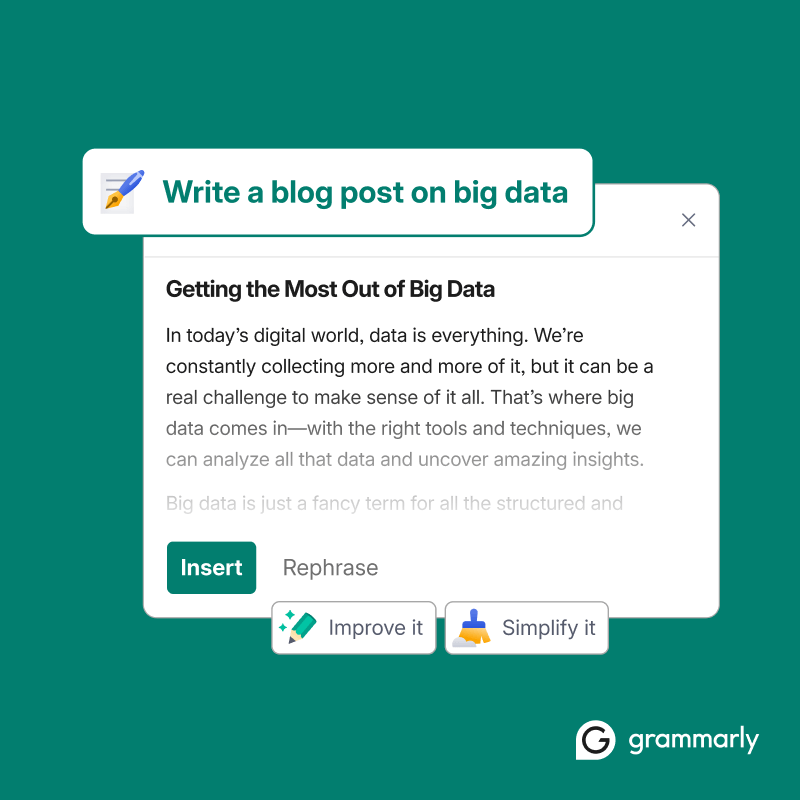
As AI-generated content becomes more common, readers (and search engines) are getting better at spotting machine-written copy. To keep your content engaging and authentic, aim for a more natural tone and vary the sentence structure throughout. Grammarly can help—not just with grammar, but also with clarity, tone, and style—so your final piece feels polished and human.
AI for SEO
Beyond content creation, AI can also be a powerful tool for SEO tasks. It can quickly analyze large volumes of data to recommend the best keywords based on your topic, audience, and goals. While some tools generate quick suggestions from a simple query, you’ll get more relevant results by including details in your AI prompt like search intent, audience demographics, or competitor benchmarks.
For example, instead of asking for “blog keywords about AI,” you might request “SEO keywords for a beginner-friendly blog post on using AI in content marketing, targeting small business owners in the US.” That added context helps the AI deliver more targeted and useful recommendations.
Beyond keyword research, AI can surface new content opportunities, analyze search intent, and help optimize existing pages with better headlines, meta descriptions, and internal linking suggestions. Some tools even flag technical SEO issues, like slow page speeds or broken links, to help keep your site performing at its best. It can also assist with competitive analysis by identifying keyword gaps, backlink opportunities, or content strategies used by top-ranking competitors.
This is only scratching the surface—for a deeper dive into how AI can enhance your SEO strategy, check out our guide to AI for SEO.
AI for advertising and campaign optimization
Online advertising is highly data driven, with performance often measured in clicks, conversions, and return on ad spend (ROAS). But creative messaging, timing, and audience psychology also play a big role in what makes an ad successful—making advertising a strong fit for AI.
AI can support ad creation by generating copy, headlines, or video scripts, helping marketers save time. But its real strength lies in campaign optimization.
With the ability to process massive amounts of performance data in seconds, AI can quickly identify what’s working and what’s not. It can help fine-tune bidding strategies for campaigns, suggest better-performing platforms, and recommend how to allocate a budget based on real-time insights.
AI can also offer insights into strategic decisions, such as which audience segments to target and what kind of ads resonate best with them. Some tools even recommend ideal messaging or formats for specific customer groups. Existing ads can also be continuously tested and improved with AI-driven suggestions.
These capabilities free up digital marketers to focus on strategy while AI handles the heavy data lifting. And this is just the beginning.
AI for social media marketing
Social media marketing is fast-paced and often unpredictable, driven by user-generated content and constantly shifting trends. AI helps marketers navigate this dynamic landscape by generating content, identifying emerging topics, analyzing audience behavior, and optimizing engagement strategies.
Here are some of the ways AI enhances social media marketing:
- Social listening and trend tracking: AI tools can scan millions of social media posts in real time to detect trending topics, brand mentions, and shifts in audience sentiment.
- Content strategy optimization: AI can predict the best times to post, suggest high-performing content types, and even recommend hashtags or captions that align with trending conversations.
- Audience targeting and engagement: By analyzing user interactions, AI helps tailor content for specific audience segments—boosting engagement and maximizing reach.
- Influencer and brand collaborations: AI can evaluate influencer credibility by analyzing engagement rates, audience overlap, and general sentiment. This helps brands identify the right influencers for effective partnerships.
Since social media trends move quickly, AI gives marketers the agility to adapt strategies in real time. With AI-driven insights, brands can build smarter, more responsive social media campaigns. For more specific AI-driven social media strategies, read our AI for social media guide.
AI for personalization and customer experience
AI’s ability to generate content quickly enables one of the most powerful tactics in modern marketing: personalization at scale. By tailoring messaging for different audiences—without increasing workload—marketers can create more relevant, engaging experiences across channels.
Take, for example, a pet brand with customers who love either cats or dogs. Instead of running a generic campaign, AI can generate targeted ads, emails, and social posts for each group. It can use data to deliver content that speaks directly to each audience—driving higher engagement and conversions.
Behind the scenes, AI excels at sorting and analyzing large amounts of data to identify distinct audience segments. It helps marketers understand who their customers are, what they care about, and how best to reach them, all with greater precision and efficiency.
Personalization goes beyond ads, too. AI can customize email content with individual product recommendations or relevant articles and automate personal touches like names, locations, or birthdays. This kind of intelligent automation strengthens customer relationships and boosts campaign performance.
Ultimately, AI-powered personalization helps brands deliver more thoughtful, targeted customer experiences, which can lead to better results and more satisfied customers.
Pros and cons of AI for digital marketing
Like any technology, AI in digital marketing comes with both powerful advantages and important limitations. Understanding both sides can help marketers use AI responsibly and effectively. Here are some key pros and cons to consider.
Pros of AI for digital marketing
- Efficiency: AI accelerates time-consuming tasks like content creation, campaign reporting, and social media scheduling—freeing up time for higher-level strategy.
- Automation: From triggering email workflows to syncing data between platforms, AI can automate repetitive tasks across the marketing stack with minimal input.
- Data-driven decision making: AI can analyze massive datasets to surface trends, predict performance, and support smarter decisions across SEO, advertising, and customer engagement.
- Personalization at scale: AI can help marketers tailor content and messaging to individual customer segments.
Cons of AI for digital marketing
- Authenticity and originality: AI-generated content can sometimes feel generic, emotionally flat, or inconsistent with your brand voice. Without human input, it may lack the nuance and creativity that build trust and connection.
- Misinformation risks: AI models sometimes “hallucinate,” presenting false or misleading information as fact. Human fact-checking is essential.
- Human oversight required: AI can speed up content creation, but it’s not set and forget. Marketers still need to refine tone, structure messaging, and ensure alignment with broader strategy.
- Limited context awareness: AI doesn’t always understand nuance, humor, or cultural context, which can lead to insensitive or inappropriate content if not reviewed.
- Tool dependency: Relying too heavily on AI can lead to skill erosion or a lack of critical thinking in marketing teams.
- Plagiarism and attribution: AI may unintentionally reuse existing content without proper attribution, raising concerns about originality. Marketers should fact-check outputs, cite AI involvement when appropriate, and use tools like Grammarly to detect plagiarism.
Best AI tools for digital marketing
With so many AI tools on the market, it can be hard to know where to start. Below are a few options that can help marketers streamline their workflows, create better content, and make more strategic decisions—whether you’re focused on writing, automation, or campaign performance.
1. Grammarly: for high-quality, on-brand marketing content
Effective writing is at the core of digital marketing—whether you’re creating ad copy, writing blog posts, or crafting emails. Grammarly is a widely used AI-powered tool that helps marketers brainstorm ideas, generate drafts, improve clarity, and do so much more across all types of content.
More than a grammar and spelling checker, Grammarly offers a suite of features designed to support strategic content work, such as:
- Generative text to jump-start content creation for ads, emails, blog posts, social media captions, and more
- Tone and clarity rewrites to keep messaging aligned with your brand voice and audience
- Plagiarism checking and AI detection to ensure originality and protect your brand’s credibility
These are just a few of the capabilities marketers can tap into—especially with Grammarly Pro, which unlocks even more advanced writing suggestions and AI-powered writing support. And because Grammarly works across 500,000+ apps and websites, from Google Docs and Gmail to Instagram and Figma, you can write, revise, and optimize content without constant context switching.
2. Zapier: for automating marketing workflows
While not always thought of as an AI tool, Zapier plays a key role in modern marketing automation. Rather than generating content, Zapier focuses on connecting tools and automating repetitive tasks—saving time and reducing manual effort.
With Zapier, marketers can build automated workflows (called Zaps) to streamline tasks across platforms. For example, you can set up a Zap to automatically send a welcome email when someone subscribes to your newsletter or log new leads into a spreadsheet in real time.
Zapier is compatible with most major business software and apps, including Google Drive, Slack, MailChimp, Facebook, Discord, and more. That breadth gives plenty of flexibility to link tasks.
3. Brand24: for social listening and campaign performance tracking
Brand24 is a specialized AI-powered tool built for social listening and brand monitoring. It scans social media platforms, news sites, blogs, and forums to track mentions of your brand and analyze sentiment, reach, and engagement.
This kind of real-time monitoring is especially useful for understanding brand perception, identifying PR risks, and measuring campaign impact. You can also use Brand24 to stay on top of trending topics, monitor competitors, or evaluate the effectiveness of influencer partnerships.
While it doesn’t assist with content creation or strategy planning, Brand24 excels at performance analysis—making it a valuable companion to your broader AI marketing toolkit.
AI for digital marketing: closing thoughts
AI is reshaping the digital marketing landscape—from streamlining content creation and SEO research to optimizing ad budgets and personalizing customer experiences. These tools help marketers work faster, make data-driven decisions, and focus more energy on creative strategy.
AI can support a wide range of marketing tasks, including keyword research, campaign performance analysis, and content creation. But like any tool, it has its limitations—such as factual inaccuracies and content that may lack a human touch. That’s why human oversight remains essential.
Still, for most marketers, the potential benefits far outweigh the drawbacks. AI tools can enhance productivity and reduce time spent on repetitive tasks with relatively little effort to get started. For marketers looking to stay competitive, exploring AI’s capabilities is no longer optional—it’s a practical next step.
If you’re ready to implement AI in your digital marketing strategy, take the first steps with Grammarly here.
AI for digital marketing FAQs
How does AI improve digital marketing strategies?
AI enhances digital marketing strategies by making them more efficient, data driven, and personalized. It accelerates content creation, helps identify and target the right audience segments, and tailors messaging to boost engagement. By analyzing large volumes of data, AI can uncover performance trends, optimize ad targeting, and suggest content strategies based on what’s worked in the past—leading to smarter, more impactful campaigns.
Which AI tool is best for digital marketing?
Some popular AI tools include Grammarly, Zapier, and Brand24, each serving different aspects of content, SEO, and automation. Grammarly not only enhances grammar, clarity, and tone but also assists with content generation and revisions.
Can AI help with personalized marketing?
AI analyzes user behavior and preferences to suggest personalized content, emails, and ads, which leads to better engagement and higher conversion rates. By recognizing patterns in how people interact with content, AI-powered tools help marketers tailor messaging to be more relevant to each audience.
Is AI replacing digital marketing?
No, AI isn’t replacing digital marketing—it’s enhancing it. AI automates tasks like data analysis, content creation, and audience targeting, improving the efficiency of marketing campaigns. However, human creativity, strategy, and emotional intelligence are still essential for brand identity and understanding customers. The best approach is to use AI as a tool for marketers, not as a replacement.

